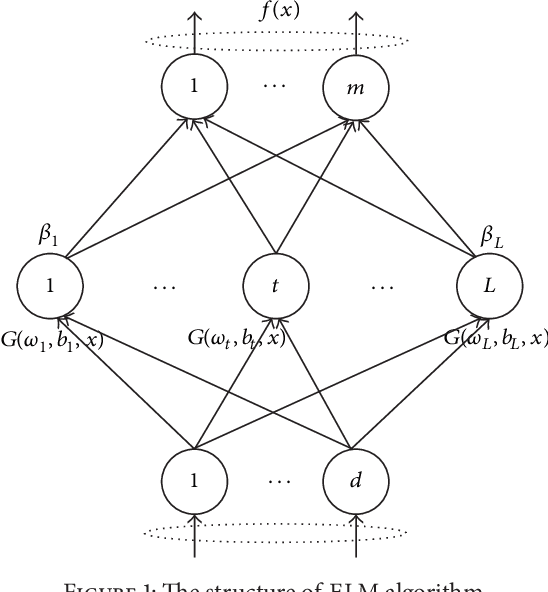RMSE-ELM: Recursive Model based Selective Ensemble of Extreme Learning Machines for Robustness Improvement
Paper and Code
Sep 23, 2014



Extreme learning machine (ELM) as an emerging branch of shallow networks has shown its excellent generalization and fast learning speed. However, for blended data, the robustness of ELM is weak because its weights and biases of hidden nodes are set randomly. Moreover, the noisy data exert a negative effect. To solve this problem, a new framework called RMSE-ELM is proposed in this paper. It is a two-layer recursive model. In the first layer, the framework trains lots of ELMs in different groups concurrently, then employs selective ensemble to pick out an optimal set of ELMs in each group, which can be merged into a large group of ELMs called candidate pool. In the second layer, selective ensemble is recursively used on candidate pool to acquire the final ensemble. In the experiments, we apply UCI blended datasets to confirm the robustness of our new approach in two key aspects (mean square error and standard deviation). The space complexity of our method is increased to some degree, but the results have shown that RMSE-ELM significantly improves robustness with slightly computational time compared with representative methods (ELM, OP-ELM, GASEN-ELM, GASEN-BP and E-GASEN). It becomes a potential framework to solve robustness issue of ELM for high-dimensional blended data in the future.
 Add to Chrome
Add to Chrome Add to Firefox
Add to Firefox Add to Edge
Add to Edge